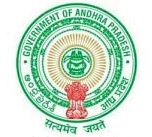AP-TET FEB 2024 Download Hall Ticket APTET Teacher Eligibility Test Andhra Pradesh : Department of School Education
Organisation : Government of Andhra Pradesh Department of School Education
Exam Name : Teacher Eligibility Test (TET) – 2024 AP-TET FEB-2024 APTET
Announcement : Download Hall Ticket
Exam Date : 27.02.2024 to 09.03.2024
Website : https://aptet.apcfss.in/
APTET Download Hall Ticket
Date of Examination is 27.02.2024 to 09.03.2024. To Download Hall Ticket for APTET AP-TET FEB-2024 Teacher Eligibility Test, follow the below steps
Steps :
Step-1 : Go to the link https://aptet.apcfss.in/CandidateLogin.do
Step-2 : Enter Candidate ID
Step-3 : Enter DOB(dd/mm/yyyy)
Step-4 : Enter Verification Code
Step-5 : Click on “Login” Button
Related / Similar Admit Card :
APSET 2024 Download Admit Card Andhra Pradesh State Eligibility Test

Structure of AP-TET
PAPER – I(A) :
Structure and Content (All Compulsory)
A Child Development and Pedagogy 30 MCQs 30 Marks
B Language I (Telugu/Urdu/Hindi/Kannada/Tamil/ Odia) 30 MCQs 30 Marks
C Language II (English) 30 MCQs 30 Marks
D Mathematics 30 MCQs 30 Marks
E Environmental Studies 30 MCQs 30 Marks
Total 150 MCQs 150 Marks

Syllabus of Teacher Eligibility Test
A. CHILD DEVELOPMENT AND PEDAGOGY (30 Marks)
1. DEVELOPMENT OF CHILD
** Childhood: meaning, multiple childhoods, parenting, child rearing styles and their impact on the development of child
** Development, Growth & Maturation — Concept & Nature, Differences between Growth and Development
** Principles of development and their educational implication
** Factors influencing Development — Biological, Psychological, Sociological, emotional.
** Dimensions of Development and their interrelationships – Physical & Motor, Cognitive,
** Emotional, Social, Moral, Language relating to Infancy, early Childhood, late Child hood, adolescence.
** Understanding Development — Piaget, Kohlberg, Chomsky, Erikson
** Individual differences — Concept, Types of individual differences (intra & inter) Factors of individual differences (heredity & environment).
** Factors influencing individual differences in the areas of Attitudes, Aptitude, interest, intelligence, creativity, Values, level of aspiration, self-concept, achievement.
a. Intelligence: Concept and meaning of intelligence, Definitions, Types of intelligence, Theories of a. Intelligence, Measurement of intelligence, IQ, Classification of IQ, Types of Intelligence tests and Uses.
b. Aptitude: Concept and meaning of aptitude, Definitions, Characteristics of aptitude, Aptitude tests Measurement of aptitude, Uses of aptitude test. Interest: Concept and meaning of interest, Denitions, Characteristics of interest, Measurement of interests. How to develop interest among students – role of teacher.
c. Attitude: Concept and meaning of attitude, Definitions, Characteristics of attitude, Attitude scales, Measurement of attitudes. How to develop positive attitudes among children-role of teacher.
d. Creativity: Concept and meaning of creativity, Definitions, Characteristics and stages of creativity, assessment of creativity, The role of a teacher in fostering creativity among the children
e. Thinking: Concept, Meaning, Definition, types of thinking, characteristics of thinking, classroom implication.
f. Reasoning: Concept, Meaning, Definition, Characteristics, Reasoning process, types of reasoning class room implication.
** Metacognition: Meaning, Concept, Nature, uses, Aspects in metacognition process.
** Development of Personality – Meaning and concept of personality, definitions, characteristics, elements and factors of personality, theories of personality, assessment of personality (Projective and Non Projective)
** Mental health, adjustment & behavioral problems, conicts, frustration, tension, anxiety, maladjustment, defense mechanisms.
** Methods and Approaches of Child Development Introspection, Observation, Interview, Case study
** Experimental method, Action research in Education
** Cross sectional and Longitudinal Developmental tasks and Hazards.
2. UNDERSTANDING LEARNING
** Learning – Meaning, Concept, Definitions, Characteristics of Learning, Types of Learning,determinants of learning, Readiness, Maturity & Motivation,Learning curves.
** Factorsof Learning — Personal and Environmental
** Dimensionsof Learning — Cognitive,Aective and Psycho – Motor.
** Motivation — its role in learning.
** Concept: Meaning, Denition, Formation of concept, Classication of concept, Types of concept,Concept Development, Role of teacher in conceptual development.
** Perception: Meaning, Denitions, process of perception, Characteristics, Principles of perceptualorganization, Inuencing factors of perception.
** Memory & Forgetting
** Transfer of Learning
Approaches to Learning and their applicability. A)Behaviorism (Skinner,Pavlov,Thorndike B)Gestalt(Kohler, Koffka) C):Observational (Bandura) D)Constructivism (Piaget,Vygotsky) E)Bruner’s theory of instruction,
** Experiential learning
3. PEDAGOGICAL CONCERNS
** Teaching and its relationship with learning and learner.
** Learners in Contexts: Situating learner in the socio-political and cultural context
** Children from diverse contexts — Children With Special Needs (CWSN), Inclusive Education.
** Understanding of pedagogic methods — Enquiry based learning, Project based learning, Survey, Observation and Activity based learning, Cooperative and collaborative learning. Individual and Group learning.
** Issues and concerns with respect to organizing learning in class room like Study habits, Self learning and Learning to learn Skills, Learning styles.
** Organizing learning in heterogeneous class room groups
** Paradigms of organizing Learning-Teacher centric, Subject centric and Learner centric.
** Teaching as Planned activity — Elements of Planning
** Phases of Teaching — Pre active, Interactive and Post active
** General and Subject related skills, competencies required in teaching and attributes of good facilitator.
** Learning resources — Self, Home, School, Community, Technology.
** Class room Management: Role of student, teacher, Leadership style of teacher, Creation of on nonthreatening learning environment, Managing behavior problems, Guidance & Counseling, Punishment and its legal implications, Rights of a child, Time Management.
** Distinction between Assessment for Learning & Assessment of Learning

Recent Comments